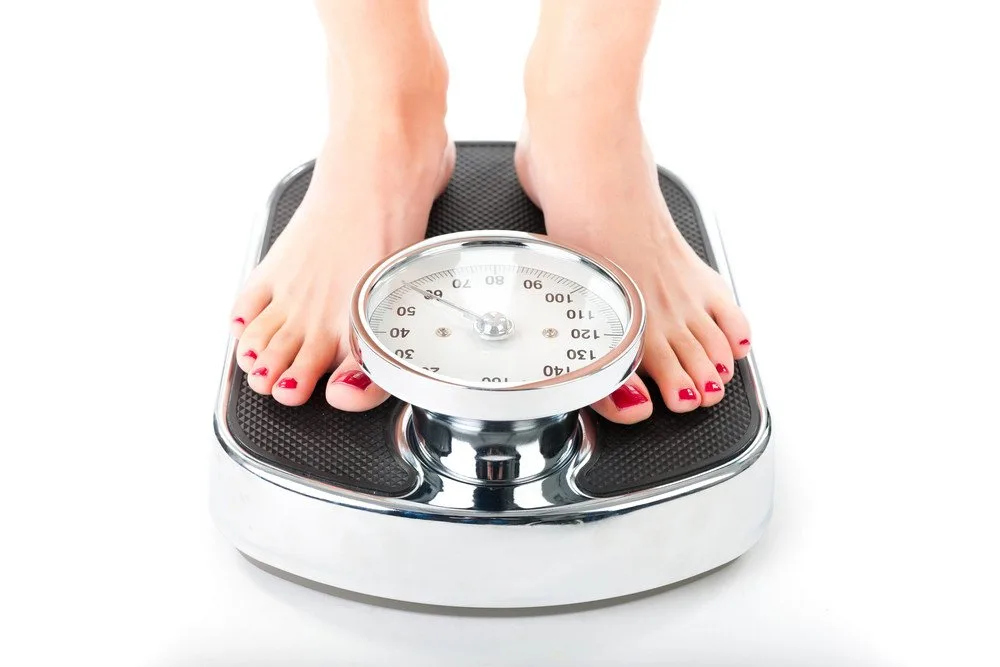If you’re looking to boost your longevity, a healthy diet, exercise, adequate rest, and a strong social circle are seen as the best ways to achieve this goal. Now, researchers have found that managing weight changes in later life might also play a role in increasing your lifespan.
Weight and Longevity: Is There A Link?
Researchers from the University of California San Diego analyzed how weight fluctuations in older women may affect their lifespan.
For the study, they examined the data of 54,437 women, aged 61 to 81, from the Women’s Health Initiative (WHI). The WHI looked at health issues in postmenopausal women.
The women provided information on their weight, medical conditions, alcohol consumption, and smoking status. The authors then looked for any, intentional or unintentional, weight changes at the start of each participant’s enrollment and later at the 3-year and 10-year marks. They then categorized the women into one of the following groups:
- Stable weight (less than 5% change from starting weight)
- Weight loss (more than 5% decrease from starting weight)
- Weight gain (more than 5% increase from starting weight)
A Stable Weight Can Help You Reach Ages 90 – 100
Per the findings, published in the Journal of Gerontology: Medical Sciences, women who maintained a stable weight after 60 were 1.2 to 2 times more likely to reach their 90th and 100th birthdays.
“It is very common for older women in the United States to experience [being overweight or having obesity] with a body mass index range of 25 to 35. Our findings support stable weight as a goal for longevity in older women.” – Professor Aladdin H. Shadyab, study lead author and professor at UCSD’s School of Public Health and Human Longevity Science.
The study also found that participants who experienced unintentional weight loss faced a 51% reduced chance of reaching 90, whilst those experiencing intentional weight loss faced a 17% reduced chance of reaching 90.
Lastly, in those who experienced weight gain, there was no association with exceptional longevity.
How does weight impact health?
While more research is needed to confirm the link between longevity and both weight loss and maintenance, especially in a more diverse population, it definitely adds credence to the importance of monitoring your weight for one’s health.
Speaking to Healthline about the study, Dr. Shara Cohen, Founder and Director of Cancer Care Parcel, suggested that having a stable weight may be a sign of lifestyle habits that benefit one’s health, such as a healthy diet,
“Individuals who maintain their weight are more likely to follow a diet that provides essential nutrients and avoids extremes in caloric intake,” she said, adding that healthy eating patterns can reduce the risk of chronic diseases, which then boosts longevity.
Also, a stable weight can be a sign of an active lifestyle, and exercise has a variety of benefits for the body,
“Engaging in physical activity can counteract age-related muscle loss and metabolic decline, promoting a longer and healthier life.” Dr. Cohen explained.
Also, unintentional weight loss is a common symptom of chronic conditions like diabetes and heart disease, both of which can jeopardize longevity. This may be why the participants who experienced unintentional weight loss in the study did not make it to age 90.
How to maintain a stable weight
Excess weight has been associated with chronic conditions, illnesses, and early mortality.
If you’re seeking to maintain a stable weight and protect both your lifespan and healthspan, try the following strategies:
- Eat a healthy diet: Adopt a Mediterranean diet that features fruits, vegetables, lean proteins, whole grains, and healthy fats, while excluding processed, sugary, and fried foods.
- Stay active: Getting regular physical activity is a great way to manage your weight. Be it running, walking, swimming, or cycling – just get out there and break a sweat.
- Manage your stress: Stress is normal, but chronic stress can cause weight fluctuations. Adopt stress relief techniques like meditation, deep breathing, yoga, or undergoing a digital detox.
- Get quality sleep: Poor sleep has been found to affect weight, so you need to make sure that you’re getting enough sleep. If you’re struggling to do so, try essential oils.
- Go for check-ups: If you’ve tried all the strategies and still notice unusual weight fluctuations, then you may need to reach out to your healthcare practitioner. Your weight instability may be a sign of an underlying health issue.
Want to know more?
As you get older, losing weight gets more difficult, for various reasons. So, why not learn more about unexplained weight gain as you age and how to achieve your ideal weight in your 60s?
References
Shadyab, A. H., Manson, J. E., Allison, M. A., Laddu, D., et al. (2023). Association of Later-Life Weight Changes With Survival to Ages 90, 95, and 100: The Women’s Health Initiative. The Journals of Gerontology: Series A. https://doi.org/10.1093/gerona/glad177





![women [longevity live]](https://longevitylive.com/wp-content/uploads/2020/01/photo-of-women-walking-down-the-street-1116984-100x100.jpg)









